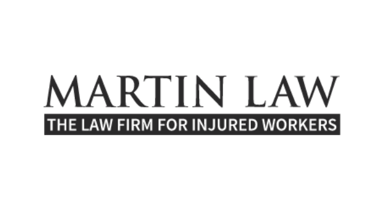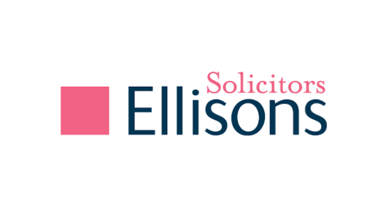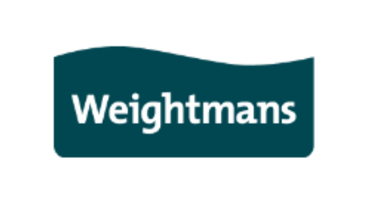Almost 60% of the Top-250 firms in Europe have already embraced digital dictation technology (DDS), a combination of increased document production efficiency, improved team working and better mobile working proving a real boon for lawyers and secretaries alike. But crucially, until late in 2006, all five of the magic circle law firms were yet to bring in the technology.
However that fact no longer stands after Linklaters became the first magic circle firm to implement a large-scale international adoption of DDS technology in 2007. Phase one has seen BigHand3 rolled out across the firm to a user base of more than 2,500, with Phase two ongoing throughout late 2007 as the user numbers rise to a total of 3,200.
Those user numbers make the Linklaters voice productivity project the largest implementation of digital dictation workflow software in the global legal sector. What can other international law firms learn from the Linklaters project?
Find out more below.
Overview
Almost 60% of the Top-250 firms in Europe have already embraced digital dictation technology (DDS), a combination of increased document production efficiency, improved team working and better mobile working proving a real boon for lawyers and secretaries alike. But crucially, until late in 2006, all five of the magic circle law firms were yet to bring in the technology. However that fact no longer stands after Linklaters became the first magic circle firm to implement a large-scale international adoption of DDS technology in 2007. Phase one has seen BigHand3 rolled out across the firm to a user base of more than 2,500, with Phase two ongoing throughout late 2007 as the user numbers rise to a total of 3,200.
Those user numbers make the Linklaters voice productivity project the largest implementation of digital dictation workflow software in the global
legal sector. What can other international law firms learn from the Linklaters project?
The Cultural Challenge
Head of information systems development at Linklaters, Dave Bennett, thinks that the firm had not been anti-digital dictation in the past but attributes delayed adoption to a culture of self-sufficiency among fee earners. Bennett says when IT departments propose DDS solutions “they need to get over the ‘old technology’ and ‘I can do it myself’ conversations” before being able to progress. At that stage the fee earners begin to realize quite how far the technology has moved on and that ‘doing it yourself’ will actually make you much less efficient than colleagues who are using the system. On an operational level, firm-wise, it is also many times more expensive to have a lawyer typing than a secretary.
Nick Rumsby – a Corporate Partner – described how the firm needs to:
...embrace digital dictation as much as possible, the most important thing about it is it will make your life an awful lot easier. DD enables us to make the most of the secretarial support that is available. We all talk about wanting more work life balance and this is a great opportunity to put this into practice.
Linklaters upgraded from a mix of analogue systems which were sourced and maintained separately on an office-by-office basis – typical of many law firms. It had also used Grundig standalone digital recording software in its German offices. When moving off these disparate, individual systems Bennett says Linklaters wanted to find an enterprise digital solution to enable more flexible working, improve mobility arrangements
for fee earners and business managers and improve the firm’s ability to accommodate local language work. Critically the software also had to cope with the technical challenge of voice over a Citrix environment.
The Technical Challenge
Terminal servers try to maintain a 15 second buffer of sound on the terminal in order to cope with low bandwidth and unreliable network connections. This buffer allows the client to play up to 15 seconds of sound if the required network bandwidth is temporarily unavailable.
Terminal server buffering traditionally leads to the following problems:
The position within the sound file is misreported. The playback position reported by the sound recorder is about 15 seconds ahead of what the user is actually hearing. Playback does not stop when requested. When the user presses the stop button, the terminal server stops streaming sound immediately but does not flush the buffer on the client terminal. The user continues to hear the buffered playback for up to 15 seconds after stop
has been pressed.
Both of these audio problems are caused by a terminal server implementation, however BigHand overcame this technical milestone by completely re-developing the recording module for BigHand3.
Software Version at Linklaters
Linklaters began with version 3.0.4 but upgraded to 3.1 before the main rollout to take advantage of its unique remote synchronization facilities over Citrix, which were crucial for fee earners. Bennett says:
Implementation has been seamless with our Citrix environment and we are currently working with BigHand to explore integrating with Metastorm BPM to help our document production units work even more efficiently.
Training and Implementation
Linklaters worked very closely with BigHand Project Management, Consultancy and Support teams from the offset. BigHand’s knowledge of voice scalability and impact on infrastructure proved invaluable, ensuring a smooth rollout and the ongoing support service is of a very high standard. User training was minimal as BigHand is an easy-to-use software and familiar to users through their use of email management systems.
One-to-one training has helped to emphasis best practices and introduced users of previously stand alone systems to the benefits of a centralized service. Floorwalking by BigHand consultants and Linklaters IT ensured that any issues or further education was confronted early on. Linklaters also provided a lot of training materials on their intranet both to train the system and to answer faqs. These included videos and Flash presentations.
Business benefits
Bennett identifies the business benefits realized as:
- Changes in working practice include reduction of overtime costs and increased use of centralized services or virtual document center (for wider language capability)
- BigHand workflows support flexible working practices (i.e. home working) as well as outsourcing potential in the future
- Increased productivity includes a quicker turnaround of documents and time savings for fee earners
- Alteration in workflow or working practices permit time savings for secretaries, allowing them to focus on client based work, enhancing use of secretarial support
- Fee Earner: Secretary ratios remain static. BigHand permits the increase of Fee Earners without the need for additional secretaries or secretarial replacement
- Strategic implementation has provided a single enterprise solution enabling Fee Earners who travel between offices to recognize and use the same equipment
- The single solution has allowed easier maintenance and support to be provided Fee Earners have the ability to send dictations for transcription to their allocated secretaries, especially where local secretaries are not equipped to work in the required language
Global Team Working
The introduction of BigHand has facilitated a far wider range of innovative back office support strategies than was ever thought possible. Inter departmental sharing across offices has been introduced, where teams in the four offices in Germany (who previously were restricted by only
being able to share within the same building or floor) can now share with a corresponding legal team in another city. There are plans to put a language specific workflow in place when secretaries who are proficient in a language other than English can work together in virtual transcription teams, supporting the fee earners who need a non-English transcription service. In future, being able to make use of the Document Production Units in Asia & America as well as the 24 hour DPU team in London means that fee earners worldwide will be provided with a quicker and higher quality of transcription service.
Looking Ahead
Linklaters are also now piloting the BigHand BlackBerry Dictation module, which will allow the firm to improve document turnaround times while lawyers are on the move (the dictation is instantly transferred rather than having to wait until they find a connection or return to the office). There is also the potential for hardware savings as lawyers converge to their BlackBerry for dictation, potentially removing the need for expensive professional remote recording devices.
BlackBerry Dictation allows a lawyer to record and then upload dictation to the office within one click. The module is device agnostic, meaning it is not dependent on what BlackBerry you have but rather whether you have upgraded your BlackBerry fleet to the latest Operating System from RIM (4.2.1).
About BigHand Digital Dictation
BigHand Digital Dictation software allows a user to dictate directly to your network using a handheld microphone, headset, remote device, PDA, mobile phone or via the web. An encrypted sound file is then transferred instantly to available secretarial support, wherever they may be located in
the world.
BigHand3 is acknowledged as the most advanced digital dictation product across the UK & Ireland, North America, Australasia, South Africa and Europe. Why? Over 50% of law firms using digital dictation workflow now use BigHand technology, and our client base ranges from Healthcare bodies to top Accountancy and Property firms.






